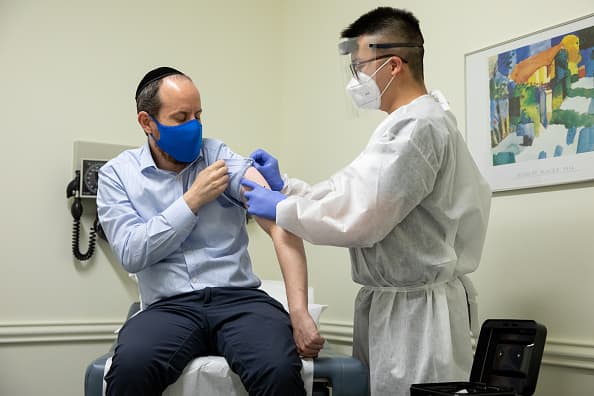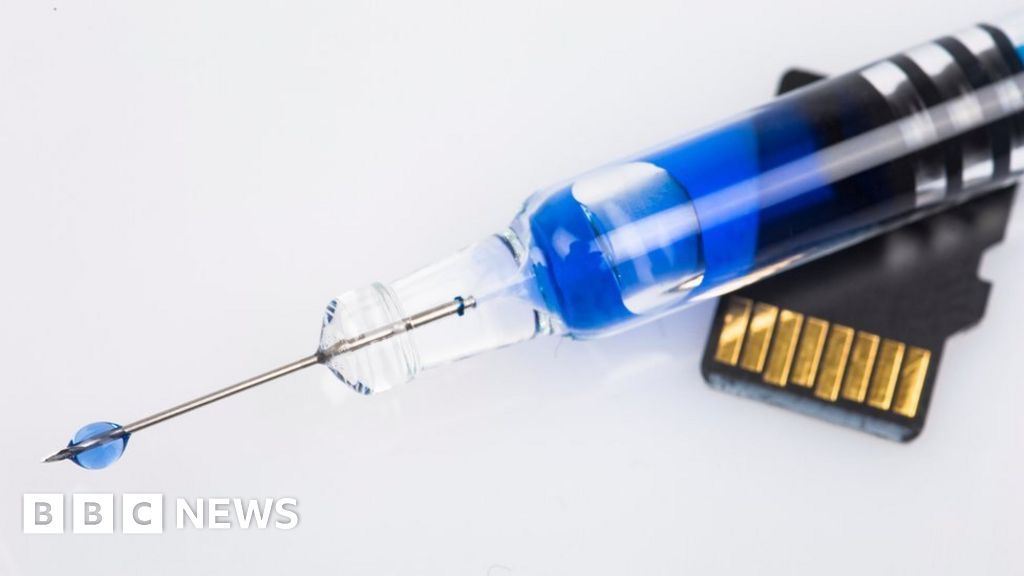Oxford-AstraZeneca jab is safe and up to 90% effective, new analysis confirms
No cases of hospitalisation or severe disease reported among volunteers who received jab
The University of Oxford and
AstraZeneca have released the long-awaited analysis results for their
coronavirus vaccine, confirming it to be safe and highly effective in preventing
Covid-19.
Trial data published in
The Lancet has reaffirmed that the jab is 90 per cent efficacious if administered at a half dose and then at a full dose, or 62 per cent effective if administered in two full doses.
No cases of hospitalisation or severe disease have been reported among those volunteers who received the
vaccine, the study said.
These efficacy results are based on a pooled analysis of phase-three trials in UK and Brazil, which included 11,636 people.
The new study also takes in additional safety data from the South African arm of the trials, showing that only three out of a total of 23,745 volunteers experienced serious adverse events that were possibly related to the vaccine.
This is the first time that large-scale trial results for any
coronavirus vaccine have been published in a peer-reviewed journal.
The University of Oxford and AstraZeneca said that the data released in
The Lancet had already been passed on to drug regulators to finalise their rolling vaccine reviews.
“It has to be a decision for the independent MHRA [Medicines and Healthcare products Regulatory Agency], who will only approve it if it is safe to use and effective. So that work’s underway.”
However, Dr Merryn Voysey, author of the report, said that further analysis of the vaccine was required to “investigate differences in key subgroups such as older adults, various ethnicities, doses, timing of booster vaccines, and we will determine which immune responses equate to protection from infection or disease.”
The phase three trials for the jab are ongoing, and the latest interim results are drawn from data collected up to 4 November. “There's a lot more to come,” said Sarah Gilbert, the Oxford professor of vaccinology who developed the vaccine.
Professor Andrew Pollard, director of the Oxford Vaccine Group, said the jab would be able to help control the pandemic – but only if it is approved, manufactured and distributed across the world on “an unprecedented scale”.
“Our findings indicate that our vaccine’s efficacy exceeds the thresholds set by health authorities and may have a potential public health impact,” he said.
The findings from the study offer more detail on the British-based vaccine, which fell under scrutiny following the emergence of apparent irregularities in the trial data released by Oxford and AstraZeneca last month.
It was revealed that the half dose-full dose regime which delivered the high efficacy rate was initially administered in UK trial participants as a mistake.
Side effects such as fatigue, headaches or arm aches were milder than expected in the volunteers, leading to the discovery that their dosage was incorrect. Regulators were immediately notified of the error but signed off on the plan to continue testing the vaccine in different dosages.
More than two-dozen different dosing regimens were used throughout the UK trial, with volunteers divided into groups dependent on age, how much of the vaccine would be administered and when.
The subset that was subject to the lower-dosage programme involved 2,741 people,
The Lancet study said. Three cases of Covid-19 were recorded among the 1,367 volunteers in the vaccine group and 30 infections were noted in the control group, to give an efficacy rate of 90 per cent.
In another branch of the trial, in which 4,440 participants received two full doses, the vaccine was found to be 62 per cent effective at preventing disease.
Upon request from the peer-reviewers, the researchers carried out a sub-analysis to better understand whether the difference between the two efficacy rates was a result of dosage or other factors, such as age and time between vaccine dose administration.
The researchers concluded that, irrespective of age or time delay, the people given the half dose followed by the full dose had better odds of protection against Covid-19.
“It doesn’t appear to be an age phenomenon that explains it,” Prof Pollard said. “It does seem to be with the half dose priming the immune system in a different way."
He said there were no plans to launch an additional trial in the UK to further assess the lower dose regimen, while AstraZeneca said the data that had been collected were sufficient enough to secure regulatory approval “in many regions of the world”.
However, more analysis is needed to fully explain “the intriguing result”, Prof Pollard added.
It will be down to bodies such as the MHRA and US Food and Drug Administration to determine which dosage programme to approve, though Prof Pollard said the rolling review of the Oxford vaccine will have largely focused on the administration of two full shots.
“It is entirely up to the regulators to look at the data and decide exactly what they think the label should say at the end,” he said.
Dr Simon Clarke, an associate professor in cellular microbiology at the University of Reading, said the findings present “regulators with something of a dilemma”.
“Data are most compelling for the cohort who got half a dose of the vaccine in their first jab,” he explained. “Unfortunately, this cohort was relatively small, reducing the reliability of the findings – moreover it did not contain any older participants [age 55 or over] and it remains possible that if the regulators allowed the vaccine to be used in this manner, the most at risk group may not be protected.”
There was also initial confusion surrounding the overall efficacy rate of 70 per cent provided by the University of Oxford and AstraZeneca last month.
In
The Lancet study, researchers said that 131 cases of symptomatic disease were recorded among the 11,636 pooled volunteers in Brazil and the UK. This included 30 infections from the vaccine group and 101 cases in the control group, equating to a vaccine efficaciousness of 70 per cent.
Nonetheless, questions continue to persist over the jab’s ability to prevent disease in the elderly.
The data in
The Lancet analysis is mostly restricted to people aged 55 and under. Researchers said five cases of symptomatic disease occurred in volunteers aged, but insisted there were too few infections to draw any definitive conclusions.
“In order to assess vaccine efficacy, we need to have a sufficient number of Covid-19 cases among participants to indicate that the vaccine is protecting them from disease,” Dr Voysey said.
“Since recruitment of older adults started later than in younger adults there has been less follow up time for these cohorts and less time to accrue Covid-19 cases. This means we have to wait longer to have sufficient data to provide good vaccine efficacy estimates in smaller subgroups.”
The new report also sheds new light on the vaccine’s ability to halt transmission of Covid-19.
A total of 6,638 volunteers in the UK trial were asked to complete weekly swab tests during the phase three study to identify any asymptomatic infections.
From this group, 69 such cases were detected, with the majority coming in the control group who did not receive the vaccine. This enabled researchers to determine that the vaccine is 27 per cent effective in preventing asymptomatic transmission.
However, Prof Pollard said more work was needed to investigate this and warned that the data “was not strong enough” to make any definitive claims. “It’s premature to shout too loudly about it,” he added.
AstraZeneca has committed to manufacturing 3 billion doses of the vaccine throughout 2021. The UK government has ordered 100 million doses – enough to vaccinate 50 million Britons.




